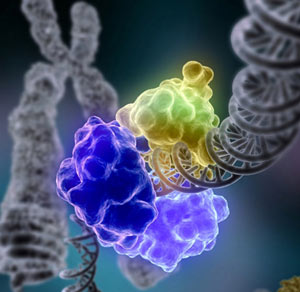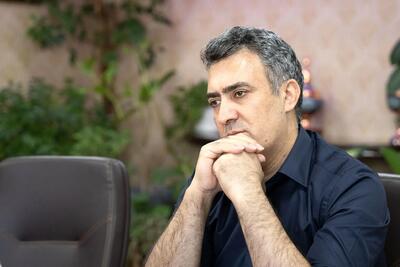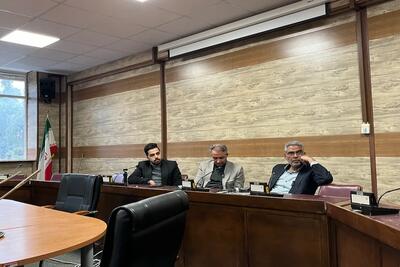دوشنبه, ۶ اسفند, ۱۴۰۳ / 24 February, 2025
Fanconi Anemia

Definition
Fanconi anemia is disease passed down through families (inherited) that mainly affects the bone marrow. It results in decreased production of all types of blood cells.
Fanconi anemia is different from Fanconi syndrome, a rare kidney disorder.
Symptoms
Person with Fanconi anemia have lower-than-normal numbers of white blood cells, red blood cells, and platelets (cells that help the blood clot).
Not enough white blood cells can lead to infections. A lack of red blood cells may result in fatigue (anemia).
A lower-than-normal amount of platelets may lead to excess bleeding.
Most people with Fanconi anemia have these types of symptoms:
Abnormal heart, lungs, and digestive tract
Bone problems (especially the hips, spine or ribs, can causes a curved spine (scoliosis)
Changes in the color of the skin, such as:
Darkened areas of the skin
Vitiligo
Deafness due to abnormal ears
Eye or eyelid problems
Kidney(s) that did not form correctly
Problems with the arms and hands, such as:
Missing, extra or misshapen thumbs
Problems of the hands and the bone in the lower arm
Small or missing bone in the forearm
Short height
Small head
Small testicles and genital changes
Other possible symptoms:
Failure to thrive
Learning disability
Low birth weight
Mental retardation
Causes & Risk Factors
Fanconi anemia is due to an abnormal gene that prevents cells from fixing damaged DNA or removing cell damaging substances called oxygen-free radicals.
To inherit Fanconi anemia, a person must get one copy of the abnormal gene from each parent.
The condition is usually diagnosed in children between ۲ and ۱۵ years old.
Tests & Diagnostics
Common tests for Fanconi anemia include:
Bone marrow biopsy
Complete blood count (CBC)
Developmental tests
Drugs added to a blood sample to check for damage to chromosomes
Hand x-ray and other imaging studies (CT scan, MRI)
Hearing test
HLA tissue typing (to find matching bone-marrow donors)
Ultrasound of the kidneys
Pregnant women may haveamniocentesis or chorionic villous sampling to diagnose the condition in their unborn child.
Treatments
Patients with mild to moderate blood cell changes who do not need a transfusion may only need regular check-ups, frequent blood count checks, and yearly bone marrow exams. The health care provider will closely monitor the person for other cancers, usually leukemia or lymphoma.
Medicines called growth factors (such as erythropoietin, G-CSF, and GM-CSF) can improve blood counts for a short while.
A bone marrow transplant can cure the blood count problems of Fanconi anemia. (The best donor is a brother or sister whose tissue type matches the patient.)
Persons who have had a successful bone marrow transplant still need regular check-ups because of the risk for additional cancers.
Hormone therapy combined with low doses of steroids (such as hydrocortisone or prednisone) is prescribed to those who do not have a bone marrow donor. Most patients respond to hormone therapy. But everyone with the disorder will quickly get worse when the drugs are stopped. In most cases, these drugs eventually stop working.
Additional treatments may include:
Antibiotics (possibly given through a vein) to treat low white blood cell counts and infections
Blood transfusions to treat symptoms due to low blood counts
Most people with this condition visit a blood disorder specialist (hematologist), a doctor who treats diseases related to glands (endocrinologist), and an eye doctor (ophthalmologist) regularly. They also may see a bone doctor (orthopedist), gynecologist, or kidney disease specialist (nephrologist).
Complications
FA is an unpredictable illness. The average life expectancy for an affected individual is ۲۲ years, but any one individual can have a life span that is quite different from this average. Research discoveries have led to life-extending treatments and improved bone marrow transplant outcome. However, as patients live longer, they become at an increased risk to develop other types of tumors.
Prevention
Families with this condition can have genetic counseling to better understand their risk.
Vaccination can prevent certain complications, including pneumococcal pneumonia, hepatitis, and varicella infections.
Persons with Fanconi anemia should avoid cancer-causing substances (carcinogens) and have regular check-ups to screen for cancer.
ایران مسعود پزشکیان دولت چهاردهم پزشکیان مجلس شورای اسلامی محمدرضا عارف دولت مجلس کابینه دولت چهاردهم اسماعیل هنیه کابینه پزشکیان محمدجواد ظریف
پیاده روی اربعین تهران عراق پلیس تصادف هواشناسی شهرداری تهران سرقت بازنشستگان قتل آموزش و پرورش دستگیری
ایران خودرو خودرو وام قیمت طلا قیمت دلار قیمت خودرو بانک مرکزی برق بازار خودرو بورس بازار سرمایه قیمت سکه
میراث فرهنگی میدان آزادی سینما رهبر انقلاب بیتا فرهی وزارت فرهنگ و ارشاد اسلامی سینمای ایران تلویزیون کتاب تئاتر موسیقی
وزارت علوم تحقیقات و فناوری آزمون
رژیم صهیونیستی غزه روسیه حماس آمریکا فلسطین جنگ غزه اوکراین حزب الله لبنان دونالد ترامپ طوفان الاقصی ترکیه
پرسپولیس فوتبال ذوب آهن لیگ برتر استقلال لیگ برتر ایران المپیک المپیک 2024 پاریس رئال مادرید لیگ برتر فوتبال ایران مهدی تاج باشگاه پرسپولیس
هوش مصنوعی فناوری سامسونگ ایلان ماسک گوگل تلگرام گوشی ستار هاشمی مریخ روزنامه
فشار خون آلزایمر رژیم غذایی مغز دیابت چاقی افسردگی سلامت پوست














































































